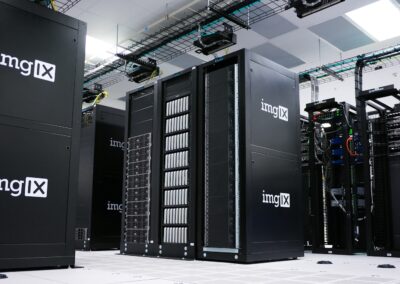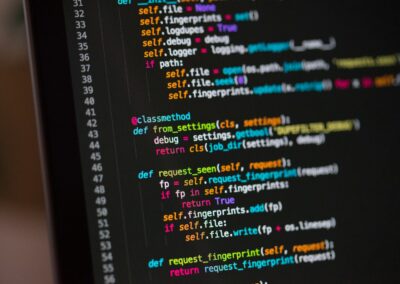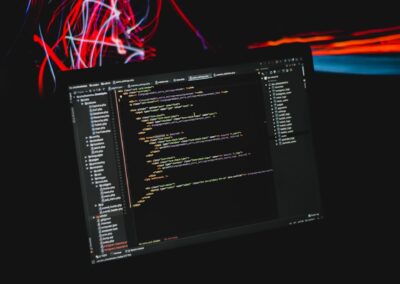Understanding the Critical Role of Real-Time Data in IoT
The Significance of Accurate and Reliable Real-Time Data
Ensuring the accuracy and reliability of real-time data in IoT deployments is critical for operational success. In bustling smart cities like Riyadh and Dubai, where IoT systems are integral to urban management, the integrity of data collected from IoT devices underpins everything from traffic control to environmental monitoring. Accurate data enables informed decision-making and optimizes resource allocation, driving efficiency and innovation.
Real-time data accuracy is crucial because it reflects the current state of various systems. In Dubai’s smart transportation initiatives, for instance, accurate real-time data on traffic flow, vehicle speeds, and pedestrian movements allows for dynamic adjustments to traffic signals, minimizing congestion and enhancing road safety. Without reliable data, such adjustments could be misguided, leading to inefficiencies and potentially hazardous conditions.
Moreover, data reliability ensures that the information collected from IoT devices can be trusted. For smart healthcare systems in Riyadh, reliable data from patient monitoring devices is essential for timely and effective medical responses. Any inaccuracies or data loss could have serious consequences for patient outcomes, making it imperative that healthcare IoT deployments adhere to stringent standards of data reliability.
Implementing High-Quality Sensor Calibration
High-quality sensor calibration is one of the foundational practices for ensuring data accuracy in IoT deployments. Calibration aligns sensor readings with known standards to eliminate errors caused by sensor drift or environmental factors. In the UAE, where environmental monitoring is crucial for air quality control, regular calibration of sensors ensures that data on pollutants is accurate and reliable.
Periodic calibration checks help maintain sensor precision over time. For example, in Saudi Arabia’s smart agriculture projects, soil moisture sensors must be regularly calibrated to ensure they provide accurate readings. This accuracy enables precise irrigation, conserving water and optimizing crop yield. Organizations must establish a regular calibration schedule and use standardized procedures to ensure consistency across all sensors.
Furthermore, utilizing sensors from reputable manufacturers who provide robust calibration guidelines can significantly enhance data accuracy. In Dubai’s smart building management systems, high-quality temperature and humidity sensors with reliable calibration protocols ensure optimal climate control, leading to energy savings and improved occupant comfort.
Utilizing Redundancy and Edge Computing
Redundancy and edge computing are key strategies for enhancing data reliability in IoT systems. Redundancy involves deploying multiple sensors to monitor the same parameter, ensuring continuous data availability even if one sensor fails. In Riyadh’s smart grid initiatives, redundant sensors for monitoring electrical load and distribution enhance the reliability of real-time data, preventing outages and improving grid stability.
Edge computing further bolsters data reliability by processing data locally at the network’s edge, reducing dependency on central servers. This is especially beneficial in remote or critical applications where continuous connectivity cannot be guaranteed. In Dubai’s autonomous vehicle networks, edge computing enables real-time data processing for navigation and safety systems, ensuring reliable performance even in areas with intermittent connectivity.
By combining redundancy with edge computing, organizations can create resilient IoT systems that maintain high data reliability and accuracy. This dual approach minimizes the impact of individual sensor failures and network disruptions, ensuring that real-time data remains trustworthy and actionable.
Best Practices for Maintaining High-Quality Real-Time IoT Data
Regular Maintenance and Firmware Updates
Regular maintenance and timely firmware updates are essential for the accuracy and reliability of real-time IoT data. IoT devices, like all technological equipment, require periodic upkeep to function optimally. In the UAE, where IoT devices are prevalent in various smart city applications, routine maintenance helps prevent device malfunctions and data inaccuracies.
Firmware updates are critical for addressing security vulnerabilities and improving device functionality. Manufacturers release updates to fix bugs, enhance performance, and bolster security measures. Ensuring all IoT devices run the latest firmware versions helps maintain data integrity. For instance, in Riyadh’s industrial IoT deployments, updating firmware on sensors and controllers ensures they operate efficiently and provide accurate data.
Implementing automated monitoring systems that detect and report issues with IoT devices in real time can enhance maintenance efforts. These systems alert maintenance teams to potential problems before they escalate, enabling proactive maintenance and minimizing downtime. In Saudi Arabia’s smart energy projects, automated monitoring helps ensure continuous and reliable operation of critical infrastructure.
Standardizing Data Formats and Protocols
Standardizing data formats and protocols is crucial for ensuring the accuracy and reliability of real-time IoT data. Consistent data formats and communication protocols across all IoT devices and systems facilitate seamless data integration, analysis, and interpretation. In the UAE, where multiple smart city projects often involve data from various IoT systems, standardization is critical.
Using standardized data formats ensures data from different devices and vendors can be integrated and analyzed seamlessly. This is particularly important for applications such as smart transportation and environmental monitoring, where data from multiple sources must be combined to provide a comprehensive view. In Dubai’s smart city initiatives, standardization enhances data accuracy and reliability, enabling more effective decision-making.
Adopting open standards and protocols also facilitates interoperability between different IoT systems. In Riyadh, where smart city projects involve numerous stakeholders and technology providers, interoperability ensures data can be easily shared and used across different systems. This enhances data reliability and supports more coordinated and efficient urban management.
Leveraging Advanced Analytics and Machine Learning
Advanced analytics and machine learning are powerful tools for enhancing the accuracy and reliability of real-time IoT data. Advanced analytics techniques, such as predictive analytics and anomaly detection, identify patterns and trends in IoT data, enabling organizations to proactively address potential issues.
Machine learning algorithms detect anomalies and predict equipment failures based on historical data. In Dubai’s smart manufacturing facilities, machine learning models analyze sensor data to predict machinery failures, allowing for timely maintenance and reducing downtime. This predictive capability enhances IoT monitoring system reliability and ensures continuous operation.
Advanced analytics improve data accuracy by identifying and correcting errors in real time. In Saudi Arabia’s smart water management systems, analytics tools compare sensor readings against expected values and historical trends to detect and correct anomalies. This ensures the data used for decision-making is accurate and reliable.
Conclusion
Ensuring the accuracy and reliability of real-time data in IoT deployments is critical for successful IoT implementations. By following best practices such as high-quality sensor calibration, redundancy, edge computing, regular maintenance, data standardization, and leveraging advanced analytics and machine learning, organizations in Saudi Arabia, the UAE, and beyond can enhance the quality of their IoT data. These practices not only improve the performance and reliability of IoT networks but also support the growth and success of smart city initiatives and other IoT-driven projects in the region.
—
#IoT #RealTimeData #DataAccuracy #DataReliability #BestPractices #SaudiArabia #UAE #Riyadh #Dubai #ArtificialIntelligence #Blockchain #TheMetaverse #ExecutiveCoaching #GenerativeAI #ModernTechnology #BusinessSuccess #LeadershipSkills #ProjectManagement
































